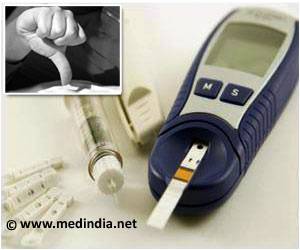The group plans to invest Rs 300 crore in capacity expansion; hospital would be listed in the stock exchanges.
Wockhardt is looking at manufacturing drugs and selling to companies abroad in their brand name that is popularly known as CRAMS.
“We have four cites in Europe, which converts to six facilities. So as a first step in CRAMS, we can start manufacturing for them,” Wockhardt group Chairman Habib Khorakiwala said in an interview.Under CRAMS (Contract Research and Manufacturing Services), emerging economies manufacture drugs for foreign companies. They find it cost-effective to outsource manufacturing to countries such as India.
Wockhardt is the latest entrant to the CRAMS business model. A few pharma companies such as Nicholas Piramal are already there in the CRAMS business.
Last year, the group bought out nutrition brands Protinex and Farex.
“We have strengthened the sales and marketing team of Protinex and Farex. We have completely reorganised and repositioned the product. We believe they have great opportunities,” he said.
“By the end of this year, sales would be up more than 50 per cent and the products would be in profit zone,” he said.
Advertisement
Last year, Wockhardt signed a memorandum of understanding with Maharashtra Industrial Development Corporation to establish the SEZ.
Advertisement
The company is looking at out-licensing its two anti-infective molecules, which are under phase I and phase II of human clinical trials.
Many multi-national companies are in talks with Wockhardt for an out-licensing deal, he said. If the valuations are good, then Wockhardt may sign the deals, he said.
Wockhardt group-promoted Wockhardt Hospitals plans to tap the capital market this financial year for raising resources for its expansion.
“We are planning an initial public offering this year. We are in the process of appointing merchant bankers for the deal,” Khorakiwala said.
The nitty-gritties of the IPO such as issue-size, dilution of promoter’s stake would begin once the merchant bankers are in place, Khorakiwala said.
Presently, there are eight Wockhardt Hospitals in Mumbai, Bangalore, Hyderabad, Kolkata and Nagpur.
“By the end of this year, we would have 12-14 hospitals,” he said.
The speciality hospitals would have more than 200 beds.
Wockhardt group would continue to concentrate in Tier II cities and it would follow the hub and spokes model.
“Our hospitals would be tertiary care facilities. And they would contribute to what the community needs,” he said.
One of the main problems faced by hospitals coming up in towns is that there is dearth for doctors.
In an earlier interview, Fortis Healthcare Managing Director Shivinder M Singh said opening a multi-speciality hospital in towns is a problem because doctors prefer to work in cities.
Fortis runs multi-speciality hospitals in cities and it recently tapped the capital market through an IPO.
But Khorakiwala sidelined the problem of non-availability of doctors. “We don’t have a problem in getting doctors for our hospitals in towns,” he said.
“Many of them are foreign educated.”
The hospitals would specialise in cardiology, orthopaedic and neurosciences.
Source-Medindia
N.G/J





